Table of Contents
Coming to Terms
with John F. Kennedy
Coming to Terms
with John F. Kennedy
Stephen F. Knott
 University Press of Kansas
University Press of Kansas
2022 by the University Press of Kansas
All rights reserved
Published by the University Press of Kansas (Lawrence, Kansas 66045 ), which was organized by the Kansas Board of Regents and is operated and funded by Emporia State University, Fort Hays State University, Kansas State University, Pittsburg State University, the University of Kansas, and Wichita State University.
Library of Congress Cataloging-in-Publication Data
Names: Knott, Stephen F., author.
Title: Coming to terms with John F. Kennedy / Stephen F. Knott.
Description: Lawrence, Kansas : University Press of Kansas, 2022 . | Includes bibliographical references and index.
Identifiers: LCCN 2021062299
ISBN 9780700633654 (cloth)
ISBN 9780700633661 (ebook)
Subjects: LCSH: Kennedy, John F. (John Fitzgerald), 1917 1963 . | United StatesHistory 1953 1961 . | PresidentsUnited StatesBiography.
Classification: LCC E .K 2022 | DDC . 922092 [B]dc
LC record available at https://lccn.loc.gov/ 2021062299 .
British Library Cataloguing-in-Publication Data is available.
Printed in the United States of America
10 9 8 7 6 5 4 3 2 1
The paper used in the print publication is acid free and meets the minimum requirements of the American National Standard for Permanence of Paper for Printed Library Materials Z.- 1992 .
For Maura Porter and Bill Van Riper
who kept the faith
And for David and Brian Knott
and Travis Scarboro
As every past generation has had to disenthrall itself from an inheritance of truisms and stereotypes, so in our own time we must move on from the reassuring repetition of stale phrases to a new, difficult, but essential confrontation with reality.
For the great enemy of truth is very often not the liedeliberate, contrived and dishonestbut the mythpersistent, persuasive, and unrealistic. Too often we hold fast to the clichs of our forebears. We subject all facts to a prefabricated set of interpretations. We enjoy the comfort of opinion without the discomfort of thought.
Mythology distracts us everywhere....
John F. Kennedy, June , 1962
c o n t e n t s
Finding His Voice:
We Face... a Moral Crisis as a Country
Cuba:
The Sins of William McKinley
a c k n o w l e d g m e n t s
I am deeply indebted to my friends Maura Porter and Bill Van Riper for their valuable insights, and to my editor, David Congdon, for his indispensable advice and encouragement. I also wish to thank my peer reviewers Patrick Lacroix and another scholar who prefers to remain anonymous. These scholars were remarkably generous in taking time out of their busy schedules and sharing their extraordinary knowledge of the Kennedy presidency. Their contributions dramatically improved this book.
I am also grateful to Colin Tripp, Erica Nicholson, and Evan Hershman, for their meticulous attention to detail. I would also like to thank John Dennehy, Arthur J. Donoghue, Rich Keyes, and Lisa Fruitt, all of whom were colleagues at the John F. Kennedy Library and became lifelong friends. Additionally, I am grateful for the friendship and support of Joe Doherty, Brian Walsh, Frank Colpoys, Jim Moloy, Rich Wade, and Gregg Lysko. My wife, Maryanne, and my daughter, Maura, were, as always, at the heart of this endeavor, as was my granddaughter, Lily. My prayer is that Lily will journey through the twenty-first century in a nation that remains a beacon of hope and promise.
i n t r o d u c t i o n
I have grappled with John F. Kennedys legacy all my life. He was the first president I remember, and his death was the first occasion in my life when I saw my mother cry. When I was five years old, I would listen to Jimmy Dean sing PT-, a top-ten hit in 1962 , on my parents massive console stereo. The song was an over-the-top tribute to JFK and the generation, including my father, that fought the good war against the Japs, as the song intoned. My Dad and his fellow veterans had vanquished the brazen enemy and were now led by one of their own, a mighty good man, according to Jimmy Dean.
My mothers devotion to all things Kennedy was rooted in her Irish-Catholic heritage. She had fought to establish a Catholic parish in our small New England town in the face of some residual anti-Catholicism found among the old-line Yankee Protestants. Kennedys Catholic faith and Irish heritage were all that was needed to win her allegiance. By breaking the Protestants only hold on the American presidency, John F. Kennedy became, as far as my mother was concerned, a candidate for sainthood.
This faith-based, ethnic allegiance had its downside, as I witnessed up close and personal in 1969 . That summer, I looked over my mothers shoulder as she wrote a letter of support for Senator Edward Kennedy (D-MA) after the death of Mary Jo Kopechne at Chappaquiddick. The doings on that remote island off of Cape Cod remained a somewhat off-limit topic of conversation in our home, although it caused frequent dustups between my mother and her Republican friends.
The following year, I went door to door campaigning for Kenneth ODonnell, a member of JFKs Irish Mafia, who was running for governor of Massachusetts. My bedroom at home was something of a shrine to Camelot, decorated with photos and memorabilia of the thirty-fifth president. I went on to serve as a college coordinator for Edward Kennedys campaign for the Senate in 1976 , and my first job out of college was at the John F. Kennedy Library in Boston, where I was hired in 1979 . My mother could not have been prouder of that achievement, even though I was basically a glorified tour guide at the museum. It was, as the Kennedy Library museum curator and Irish Mafia member Dave Powers was fond of saying, like dying and going to heaven.
Dave Powerss office was two doors from mine, and listening to Powers regale me with stories about this skinny young PT boat veteran who recruited him at his Charlestown tenement in 1946 made me feel like I had become a part of we happy few, we band of brothers. It was Powers who introduced me to Jacqueline Kennedy Onassis, prompting the one and only time in my life when I became completely tongue-tied. In my mothers mind, this introduction was the highlight of my life.
During the almost six years I worked at the Kennedy Library, I frequently went into the archives, where an archivist would let me peruse material, including tape recordings, that was still closed to researchers. I was given access to closed materials that a hyper-protective family denied to most scholars save a favored few, including Arthur Schlesinger Jr. and Doris Kearns Goodwin.
Ironically, just as I reached the mountaintop, my faith began to wane. During my time at the Kennedy Library, I saw things that soured me on the Kennedys, including a certain arrogance on the part of some members of the family, and a propensity of Kennedy groupies to prostrate themselves for a brush with American royalty. One longtime groupies claim to fame was her role as a babysitter for Robert Kennedys grandchildren, and she could not have been prouder. I was also repelled by the parade of extramarital affairs within the Kennedy circle, which were too numerous to count; it was as if it were a sign that you had made it to honorary Kennedy status if you had someone on the side. Throughout the 1980 s and 1990 s, the bad behavior of far too many presidential nephews was off the charts, not to mention the behavior of Senator Edward Kennedy. It also became clear to me that members of the Kennedy family saw the library as a stylish backdrop for photo ops promoting the latest family endeavor, not as a treasured historical resource. One of my most deflating experiences was hearing a longtime Kennedy aide express his surprise that visitors to the library were still believing that crapthe introductory film and exhibits at the library.


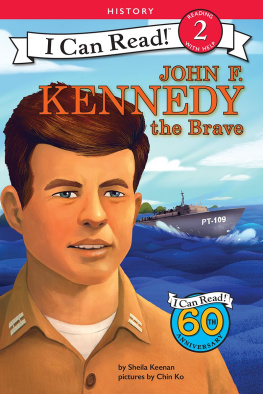

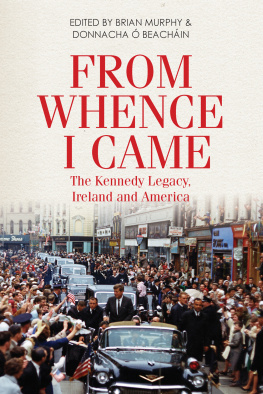
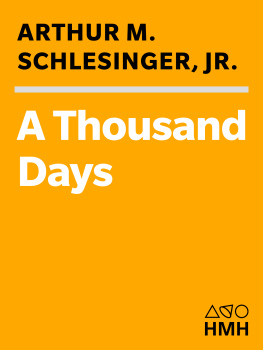

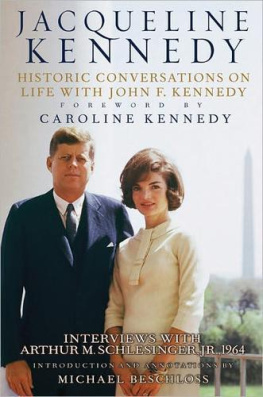
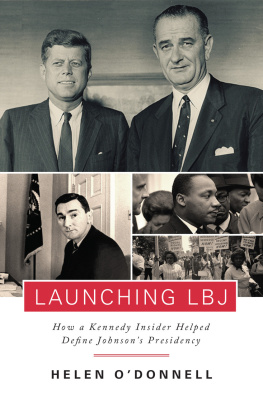
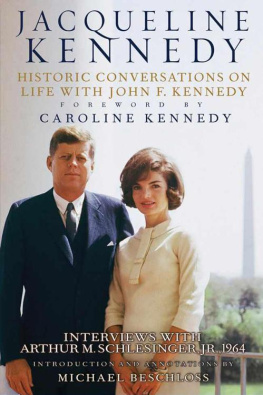
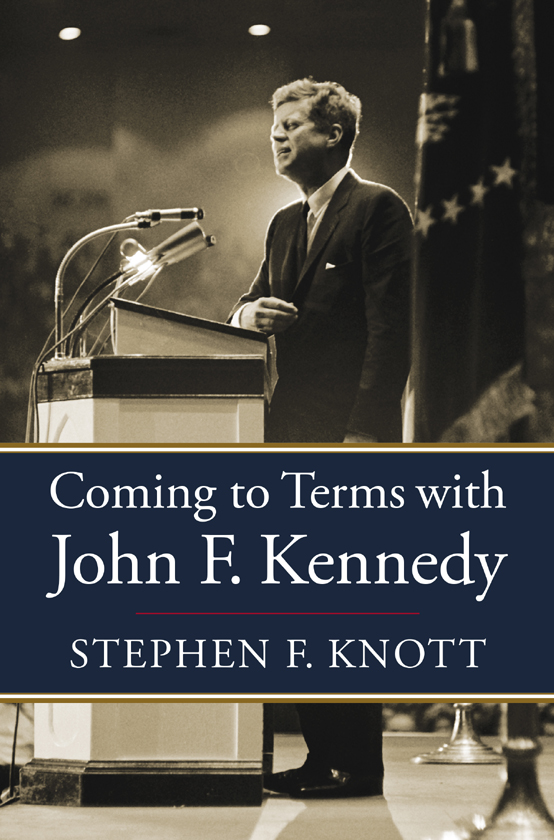
 University Press of Kansas
University Press of Kansas